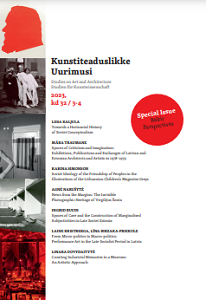Spaces of Care and the Construction of Marginalised Subjectivities in Late Soviet Estonia
Spaces of Care and the Construction of Marginalised Subjectivities in Late Soviet Estonia
Author(s): Ingrid RuudiSubject(s): Architecture, Post-War period (1950 - 1989), History of Communism, History of Art
Published by: Eesti Kunstiteadlaste Ühing
Keywords: Soviet Union; Estonia; Art History; Marginalized; Architecture;
Summary/Abstract: The article discusses spaces of care in Estonia in the 1950s–1980s, focusing on orphanages and nursing homes for the elderly and the physically and mentally disabled. The planning, architecture and spatio-temporal management of those buildings is analysed as the intersection of discipline and care, as mechanisms of the categorising, segregating and disciplining of marginalised individuals, as well as a means of taking care of them. The article looks at the ideologies and means of spatial and discursive invisibility of those subjects, and demonstrates the systems of semi-hidden stratification of late Soviet society as manifested in the highly variable quality of design and spatial conditions of the residential institutions. Additionally, it also points out certain practices of spatial subversion the residents used for adapting, appropriating and challenging the spatial settings assigned to them.
Journal: Kunstiteaduslikke Uurimusi
- Issue Year: 32/2023
- Issue No: 03+04
- Page Range: 136-167
- Page Count: 32
- Language: English
- Content File-PDF

